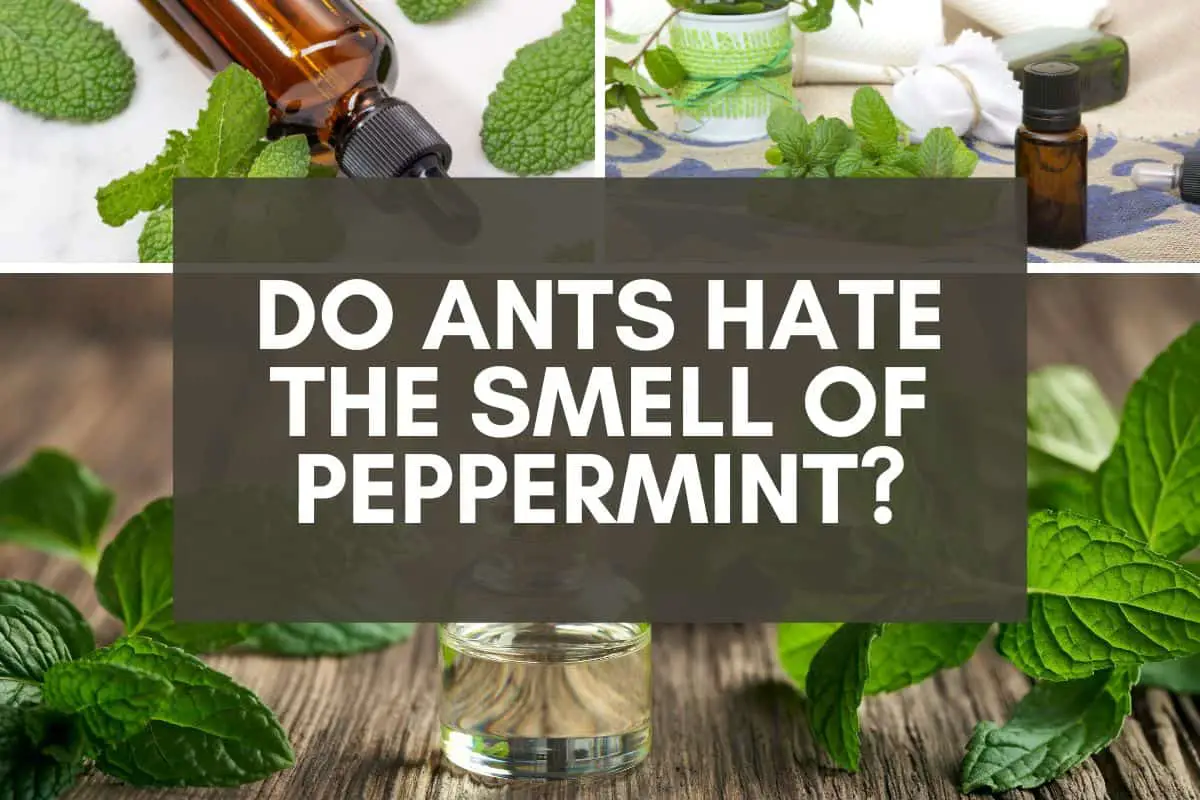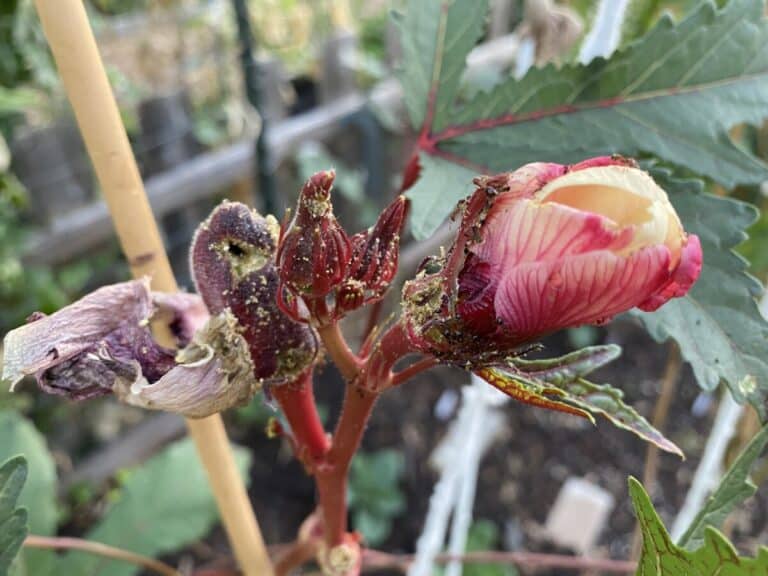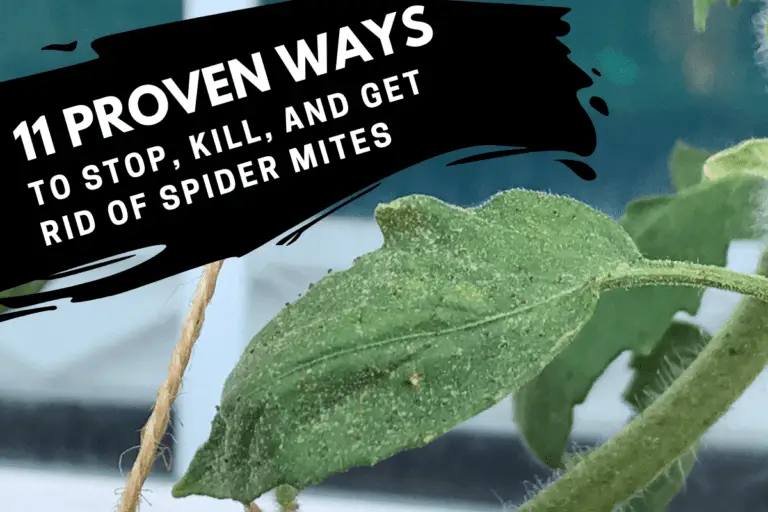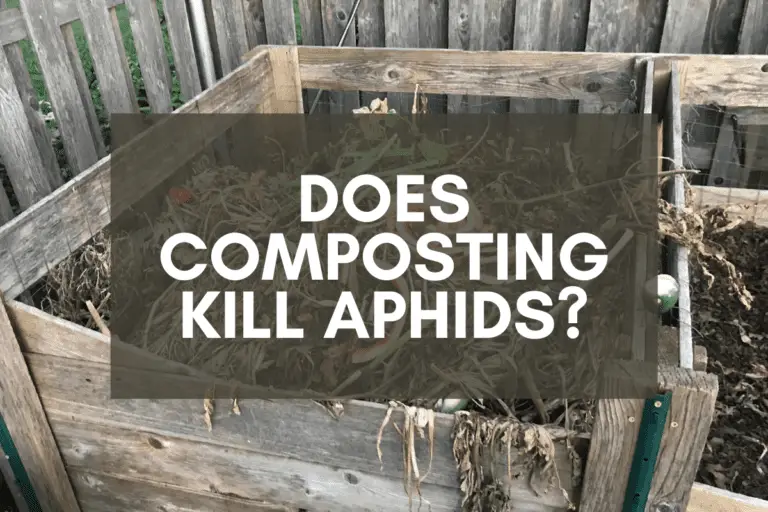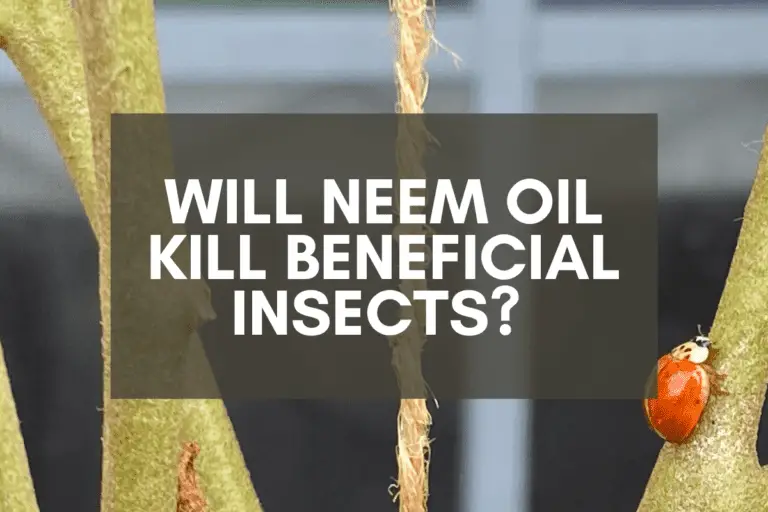Do Ants Hate the Smell of Peppermint? Here’s What to Know
One morning, I awoke to a few ants in my dining room. No big deal. I swept them up and got rid of them. But by the third day, there were hundreds, and they’d traveled through the kitchen and into the laundry room too. Yikes!
Has this ever happened to you? If so, you know that ants are notoriously difficult to get rid of once they invade your home or garden. And putting food away and cleaning up isn’t enough to stop them.
But before you douse your property with chemical pesticides, consider something kinder to you and the environment: peppermint essential oil.
Ants cannot stand the scent of peppermint oil. Composed of the primary chemical compounds terpene, alcohol, and menthol, peppermint oil functions as a natural fumigant that repels ants when their smell receptors pick up the compounds.
In fact, it’s so repugnant to ants that field studies have shown that “peppermint oil particles caused fire ant nests to be abandoned.”
I love the idea of keeping things natural when it comes to pest control, which I’ll discuss further below. But many years ago, before I transitioned from chemical to natural insecticides, I didn’t know the first thing about essential oils, let alone which ones would get rid of ants.
To get up to speed with natural ant control solutions, here’s what I’ll go over in this article:
- Differences between peppermint essential oil and peppermint extract
- A simple peppermint oil recipe that repels ants
- A simple peppermint oil recipe that obliterates their pheromone trails
- A list of additional smells that ants avoid and how and where to use them
- A list of DIY ant remedies that don’t work very well
By the end of this article, you’ll have more confidence when it comes to naturally ridding your home or garden of these pesky little bugs.
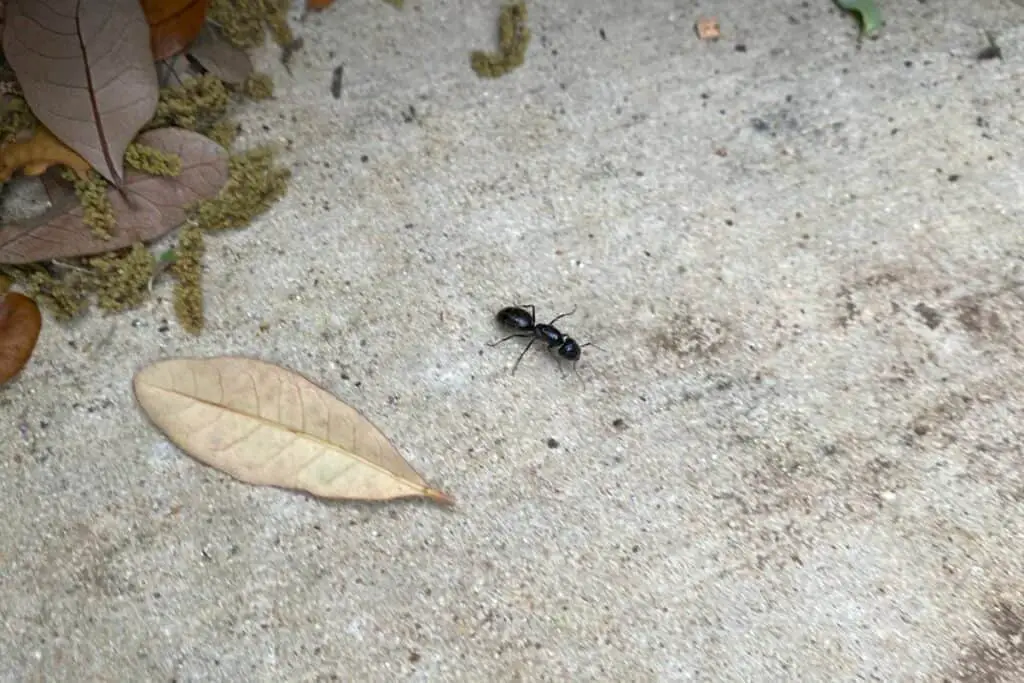
Does Peppermint Really Repel Ants? 3 Tips + 2 Simple Recipes
Peppermint oil is an effective DIY remedy when it comes to ant problems. But before you jump ahead to the recipes, there are three things you need to know:
Tip 1: Peppermint essential oil and peppermint extract are two very different things.
Let’s take a quick look at some of those differences:
| Peppermint Essential Oil | Peppermint Extract |
|---|---|
| Derived from the peppermint plant’s stems and leaves. | Mixture of peppermint essential oil and alcohol. |
| Incredibly potent and has a very intense fragrance. | 4x less potent than peppermint essential oil. |
| Found online or in large, higher-end grocery stores. | Found in grocery store baking aisles. |
Tip 2: Peppermint oil doesn’t kill the ants.
Ants typically come into your home looking for sweet and greasy food particles — kitchens, pantries, and dining areas are prime targets. Or, in my case, the laundry room where I store bags of dry cat food.
Once a worker ant locks onto a food source, it lays down a pheromone trail for other ants to follow.
Peppermint oil repels because ants hate the smell of terpene and menthol, making it difficult for them to smell past the scent and find the trail.
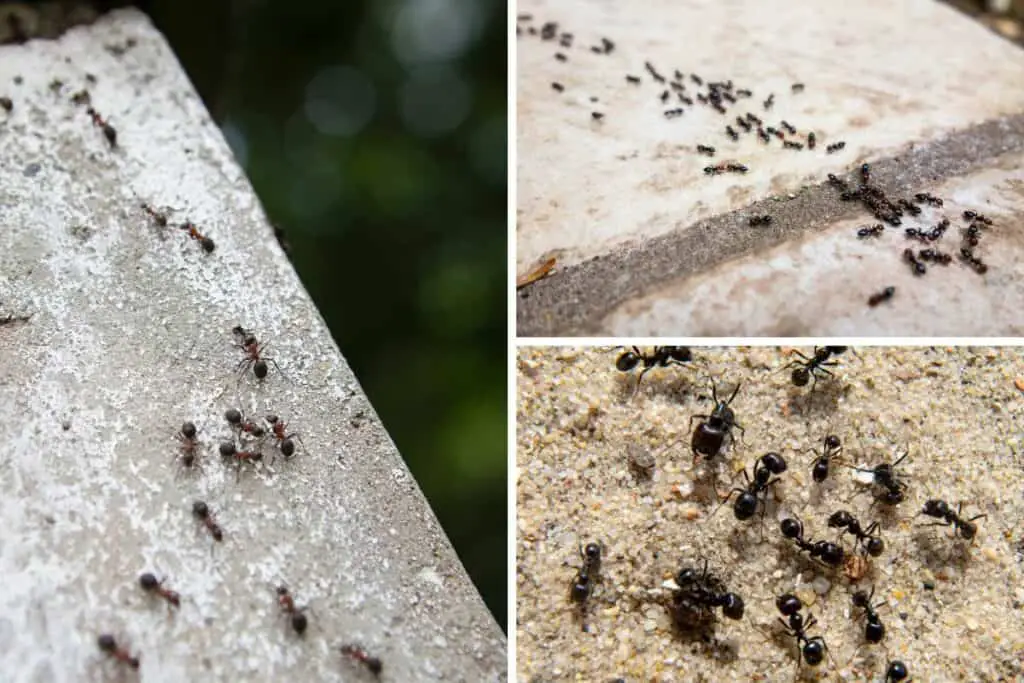
Tip 3: Pheromone trails need to be obliterated.
If you repel the ants with peppermint oil but don’t erase the pheromone trail, the ants will keep coming.
When it comes to errant ants wandering around your house or garden, use this simple recipe to discourage continued exploration:
Step 1: Identify the Entrance.
To start off with, you’ll need to identify where exactly the ants are coming into your house, garage, greenhouse, or shed. The likely places are cracks in the walls, gaps beneath the door, and cracks around window frames.
Put a couple of drops of peppermint oil on the cotton balls and place them where you see the ants. The scent will repel the ants from entering.
Step 2: Make Your Peppermint Oil Spray
Mix 10-to-20 drops of peppermint essential oil with 2 cups of warm water in a spray bottle. Spray where you see the ants.
If they’re on your furniture, curtains, rugs, and other fabrics, pre-test your spray on a small area to ensure the oil won’t damage the items.
Step 3: Get Rid of Remaining Ants
Once you’ve identified the entrance point and sprayed with peppermint spray, you’ll want to sweep or use a hand vacuum to suck up any remaining ants and discard them outside.
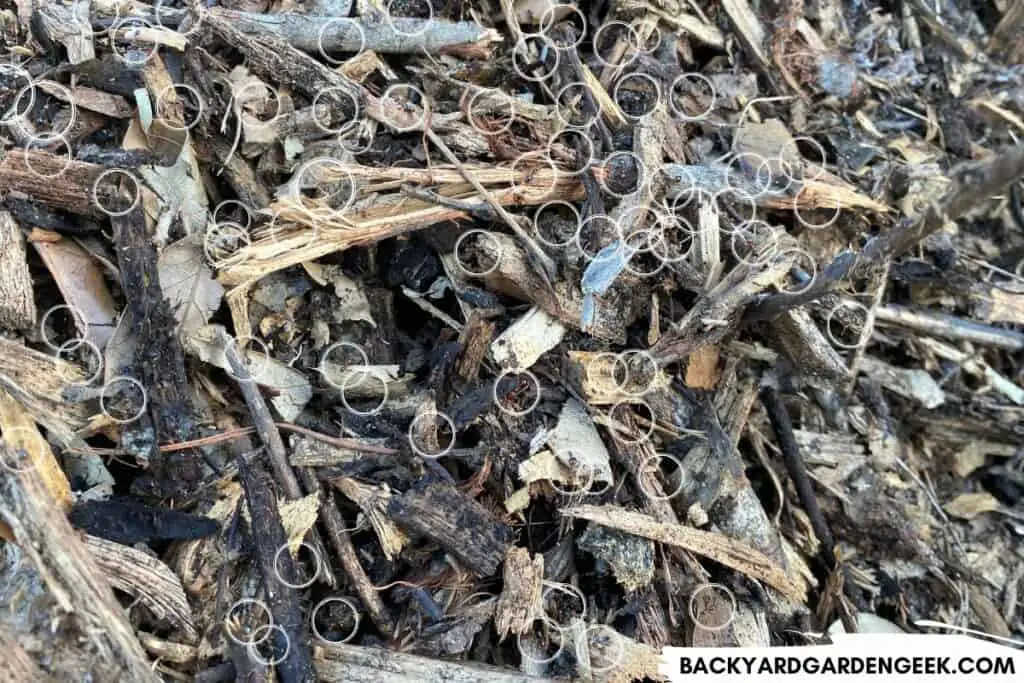
If you’re being invaded (like I was) and can see lines of ants, then pheromone trails have been laid down, and the ants have targeted food source particles.
Use this simple ant repellent and pheromone trail obliteration recipe to deter and wipe out their trails:
- Step 1: Remove access to the food sources by putting the items in closed containers. Clean up spills and grease.
- Step 2: Mix 10-to-20 drops of peppermint essential oil with 2 cups warm water plus 1/8 cup white vinegar in a spray bottle.
- Step 3: Spray wherever you see ants.
If the pungent smell of vinegar puts you off, don’t worry. It will dissipate, and you’ll be left with a great peppermint scent afterward.
How Long Does Peppermint Oil Repel Ants?
The short answer is that peppermint oil will repel ants as long as you’re vigilant with it.
The University of Georgia conducted experiments on six essential oils and their ability to repel the Argentine ant and red fire ant. “Argentine ant mortality after 24 hours was 89.8% with peppermint oil,” lasting for a week.
If you’re only using peppermint oil to get rid of ants, remain vigilant — it can take several applications to repel them completely.
However, if you use peppermint essential oil in conjunction with white vinegar that removes the scent trails, you’ll have longer-lasting results.
Of course, if you’ve got a massive infestation, and if your DIY remedies aren’t working all that well, the best way to ensure ants don’t return to your home is to find their nest and treat it professionally. Call your local pest control service if you’re having trouble with an infestation.
What Smells Do Ants Hate or Avoid?
Ants avoid strong scents. Here’s my top 10 list of scents that ants hate and some tips on where, when, and how to use them:
1. Peppermint Oil
Peppermint oil stands out above other DIY remedies for its efficacy and safety. It’s fast and effective at repelling ants, and while not meant to be used for widespread ant infestations, it’s my go-to natural solution for ant control inside the house of outside in my garden.
2. Diatomaceous Earth
If you’re interested in using Diatomaceous Earth (often referred to as DE for short), be sure to use the “food grade” version. Gently shake the powder directly on the ants or on top of the soil in your raised beds or potted plants to kill them. You can even sprinkle it as a preventive to keep ants from getting into your home.
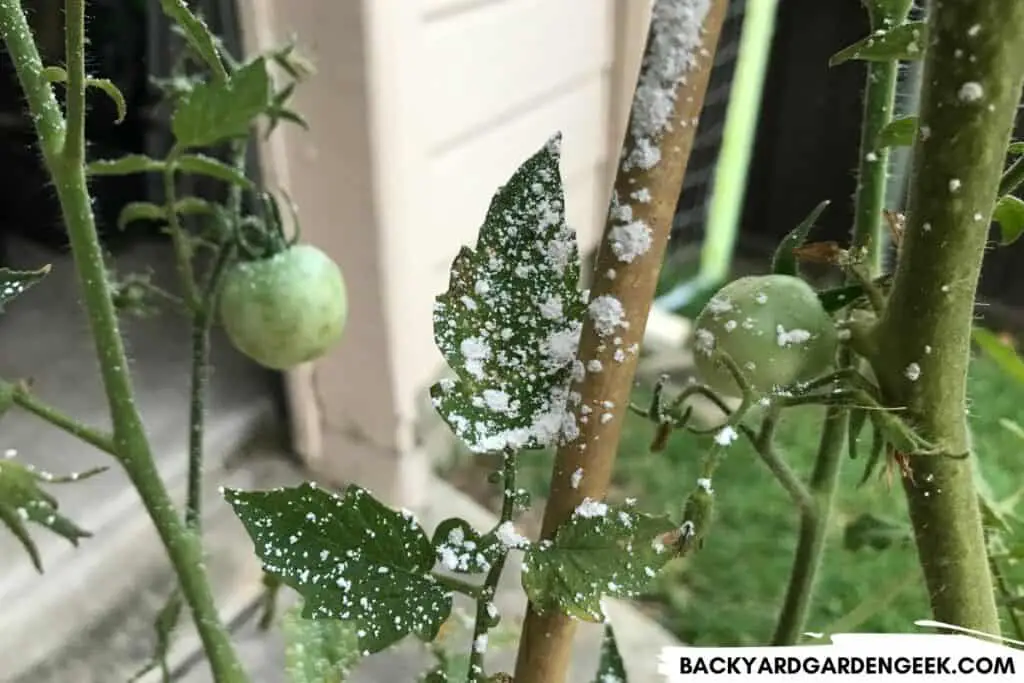
3. Baking Soda
Repels ants. Mixing baking soda with diatomaceous earth repels and kills them. Use this in the home or garage.
4. Castile Liquid Soap
Made from all-natural oils, it kills ants on contact and is generally safe for garden plants as long as you don’t spray them during the heat of the day. Mix 2 cups of water with 1/8 cup soap and 5 drops of peppermint essential oil.
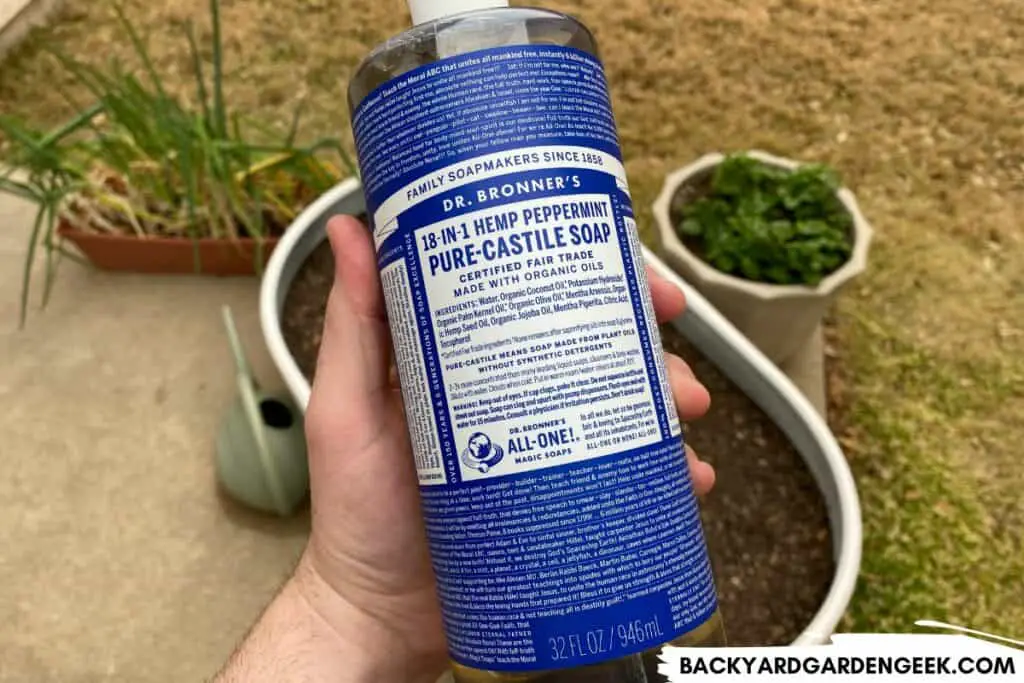
5. Cedarwood Oil
This essential oil is a successful repellent in the home. Cedar chips effectively discourage ants when placed outside the home.
6. Citrus Oils
Ants hate the smell of citrus oils, and it erases the pheromone trails they leave behind. Citrus is a great way to remove ants from potted plants. Plus, if fire ants are a problem in your home, it kills them!
Citrus rinds, from which the oil is extracted, contain d-limonene, one of the most common terpenes in nature. Sweet orange, grapefruit, tangerine, lemon, and mandarin oils have the highest d-limonene levels.
The nice thing about citrus oils and citrus oil sprays is they leave a pleasant smell afterward, unlike the harsher scents of vinegar or alcohol.
7. Clove Oil
Clove essential oil will kill ants when sprayed directly on them in the home and on your potted plants. And the clove buds outside will repel them.
8. Lemon Juice
A 50/50 mixture of lemon juice and water repels ants in the home and on your potted plants. Lemon essential oil is even more effective.
9. Tea Tree Oil
Tea tree oil repels, kills, and poisons ants, which makes it the trifecta of ant control. The smell repels and kills when sprayed directly on them (10 drops in 2 cups of water) and is safe for your potted plants. Additionally, when ants pick up the oil on their bodies, they carry it back to their nests and poison the colony.
10. White Vinegar
Ants hate the smell of white vinegar (which is great!), plus it’s also a natural cleaning agent that repels ants and eradicates their trails. Just don’t use it on your plants because the acidic levels may kill them.
Because white vinegar contains acetic acid, it’s an excellent tool for pest control against ants, spiders, and mosquitos. I mix a 50/50 solution and mop my floors with it each month.
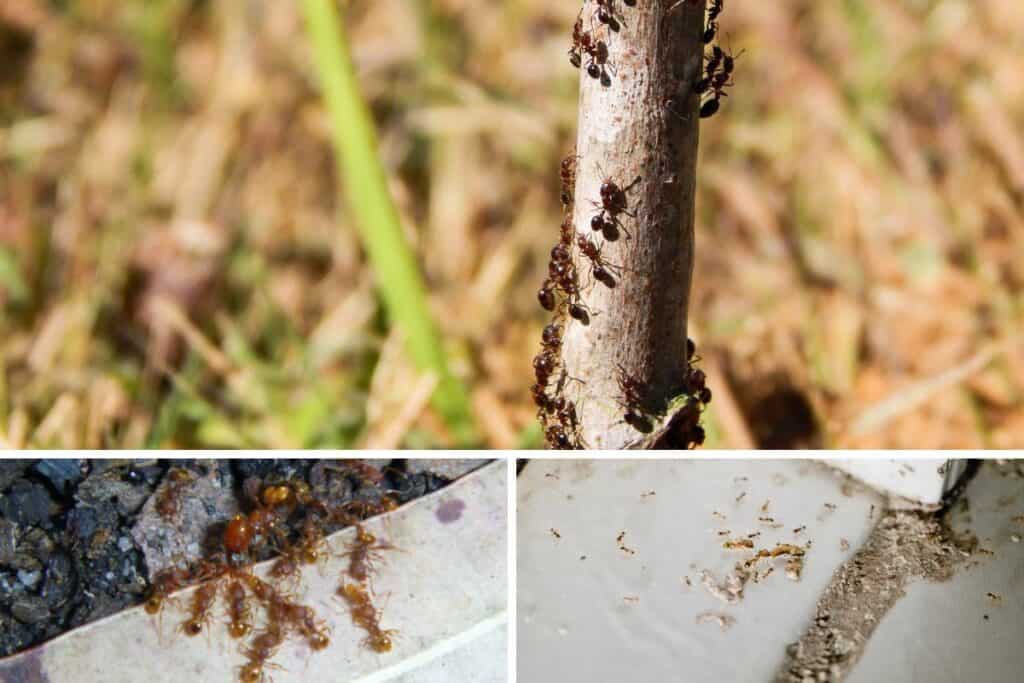
If you search the internet for natural solutions to repel ants, you’ll find lots of advice that may or may not work.
The simple recipes I shared earlier work, as do the items on the above list since they’ve got scents that ants hate.
I’ve seen the remedies below recommended on various websites, but they either don’t work or don’t work all that well:
| DIY Remedy | Conclusion |
|---|---|
| Baby Powder | Nope. This won’t dry out their bodies or clog up their airways and suffocate them. |
| Baking Soda | This only temporarily masks their pheromone trails. |
| Boiling Water | This works okay if it’s boiling and poured directly on ant mounds. It works best outside as an ant hill destroyer, so please don’t pour boiling water on any indoor ants! |
| Chalk Line | When drawn outside your door, this can temporarily stop ants. However, they’ll soon find a way around it. |
| Cinnamon Powder or Sticks | These won’t kill or repel, so please don’t waste your money on this DIY suggestion. |
| Coffee Grounds | Much like chalk, these only have a temporary effect. Ants will soon find ways around them, and you’ll have simply wasted your coffee grounds. |
| Uncooked Oatmeal or Grits | Ants don’t eat solid foods like these, so no, their stomachs won’t explode when they eat it. |
As you can see, there are lots of organic DIY remedies for ant problems. I recommend picking the one that looks easiest to you, then giving it a try. If it doesn’t work exactly as you had hoped, move on to the next option and see which one does the trick!
Whatever you end up doing, you’ve now got all of the info you’ll need to keep ants out of your home and garden.
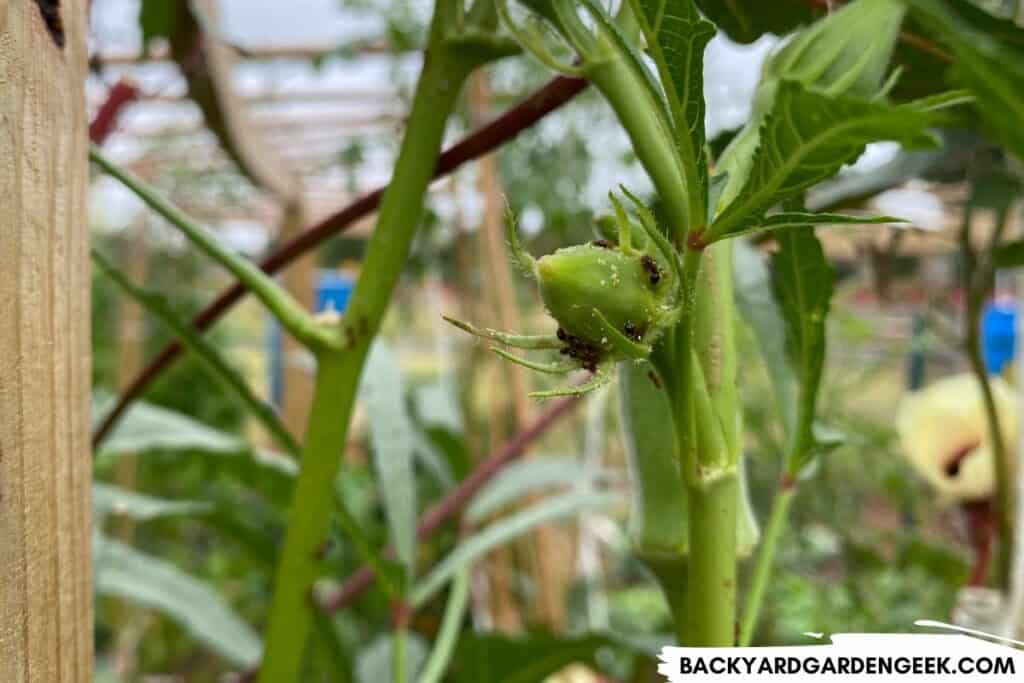
Ants and Aphids: A Symbiotic Relationship
When it comes to ants, if you see them outside, either in your potted plants or crawling around your garden beds, there’s a good chance you might have aphids.
Ants are attracted to honeydew droplets, a sugary substance that aphids leave behind as byproducts when they feed on your plants. It’s not enough to simply get rid of the ants since they’ll just return as soon as you’ve let your guard down.
You’ve got to get rid of the aphids instead since the ants will leave and go elsewhere once their food source is no longer available.
If you’d like to read more about how to deal with ants and aphids, you might be interested in these articles. I’ve included an article below about spider mites since, in that article, I share a pest management strategy that has worked wonders for my garden over the years when dealing with extreme infestations.
